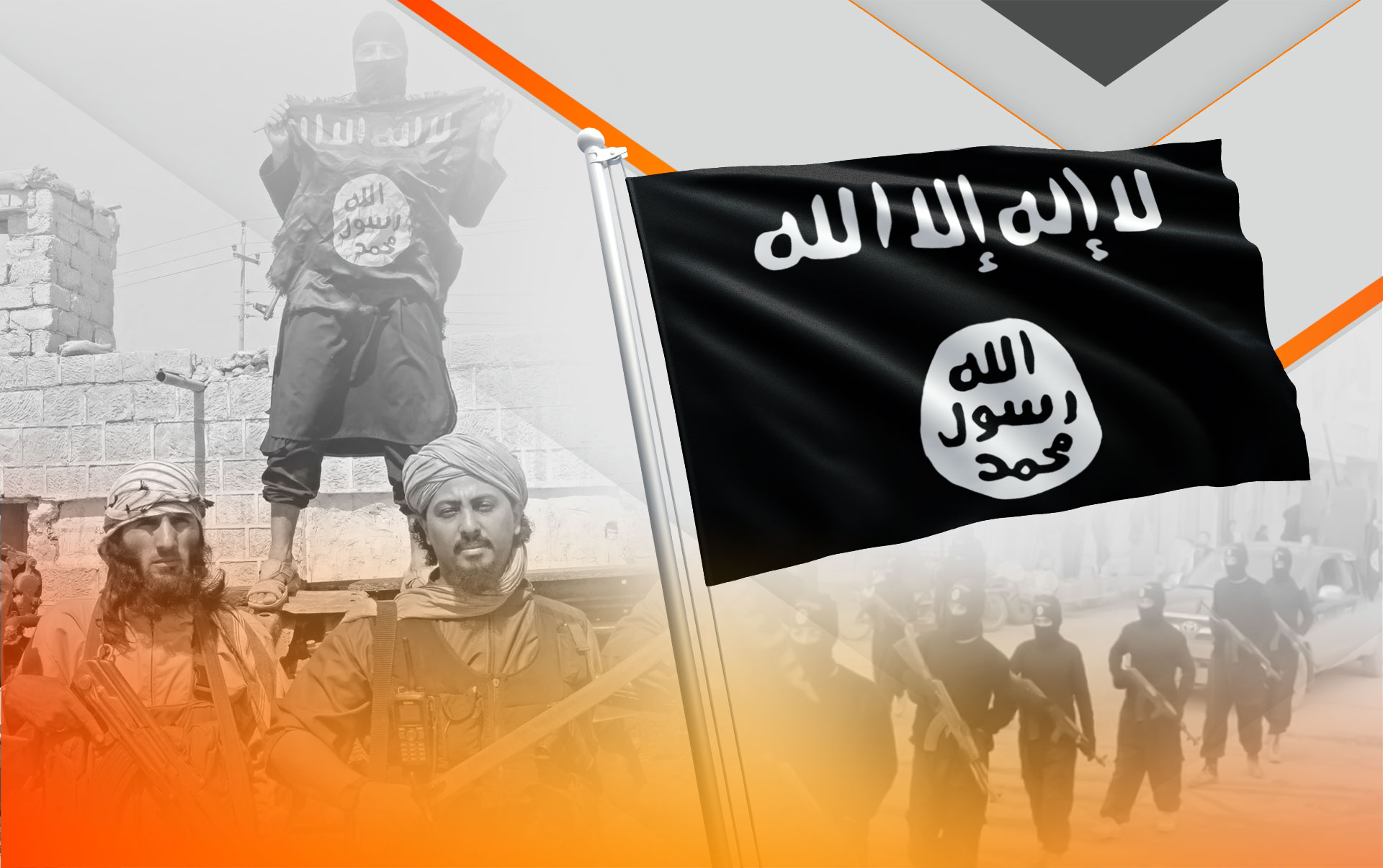In recent years, the activities of ISIS have escalated in Iraq which once again drew attention to the terrorist organization. Despite Iraq’s announcement on December 9, 2017, to expel ISIS and impose its control over the entire territory of the country, including the border with Syria, the organization’s sleeper cells never ended and the terrorist organization was later able to carry out many remarkable operations in the Kurdistan Region, Iraq, and Syria.
ISIS Reactivation
Iraq has not yet managed to eradicate ISIS. Since Baghdad declared its victory over the terrorist organization, “Daesh” has carried out more than 3,000 operations, most of which were qualitative and strategic ones! Last July, ISIS carried out 26 operations in Iraq. Eight of them were in northern Baghdad, four in Mosul, five in Diyala, five in Kirkuk, three in Salah al-Din, and one in Babil.
ISIS saw the political closure in Iraq as an opportunity to revitalize itself. Through its operations, the terrorist organization aims to prove to its abilities that it is still active and possesses capabilities. This will help ISIS to show off its capabilities and promote these capabilities through the media. During the previous year, ISIS managed to intensify its attacks on the areas between southern Kirkuk, Salah al-Din, and Diyala.
ISIS Compared to Previous Years
Previously, ISIS operations were carried out across the country. However, right now its operations are now divided into “wilayats” (territory), which consist of the Wilayat of Mosul, Anbar, Salah al-Din, and Wilayat of the Tigris. This has decentralized ISIS operations. For example, the governor or the terrorist him/herself now determines the area, method, and timing of the attacks. But in the past, their work was more centralized and the “Wali”s approval had to be obtained first. Operations can currently take place without the wali’s approval, which has led to an explicit expansion of ISIS operations in recent times. In the present climate, ISIS is unable to occupy a village, district, or governorate, but it is still able to conduct large-scale operations and attack the Iraqi Federal Police. ISIS’s recent attack was on the Federal Police in the Mutaibija village located in the east of Salah al-Din Governorate. The attack resulted in the killing of six policemen and the injury of others. So far, the leaders of the terrorist organization have not been targeted, only princes have been targeted. Within the organization, the death of the “Amir” (prince) does not affect the organization’s work, because, before the burial of the murdered “amir”, another amir will be appointed to replace him.
ISIS New Tactics
After losing human resources and military supplies, ISIS returned to its initial position at the time of its founding, and this forced ISIS to transform its way of operating. ISIS currently focuses on assassinations, bombing roads and vehicles, sniping operations, attacks on distant checkpoints, setting up fake checkpoints on intercity roads, and indirect firing of mortar shells. This decentralized and localized approach will produce an increase in ISIS attacks on Iraq and the Kurdistan Region. This indicated by KRI President Nechirvan Barzani, that it requires “more coordination between the Iraqi army and the Peshmerga and the ongoing support of the international coalition forces” to confront these dangers.
Political Closure and ISIS Movements
All of the Iraqi military forces, including the federal police, are subject to control by parties and politicians. No security force in Iraq takes orders from one side only. The work of the Iraqi military forces is reflected in the understanding between the political forces in Iraq. In addition, several other forces receive orders from outside Iraq as well. Therefore, the armed forces in Iraq are under the same influence as the political parties and personalities. Any political division or conflict will have an extensive impact on the functioning of the Iraqi military forces. In addition, The Iraqi Forces are now preoccupied with other tasks that could distract them from their war against ISIS. Examples of these current duties are protecting government buildings and demonstrators and confronting militias.
The reactivation of ISIS in Iraq will have an enormous and direct impact on the country’s stability and security. Consequently, these security risks will hinder the continuation of investment projects in Iraq and the Kurdistan Region in the future. ISIS activation once again caused panic among Iraqis and once again became a source of fear for their ordinary lives.



